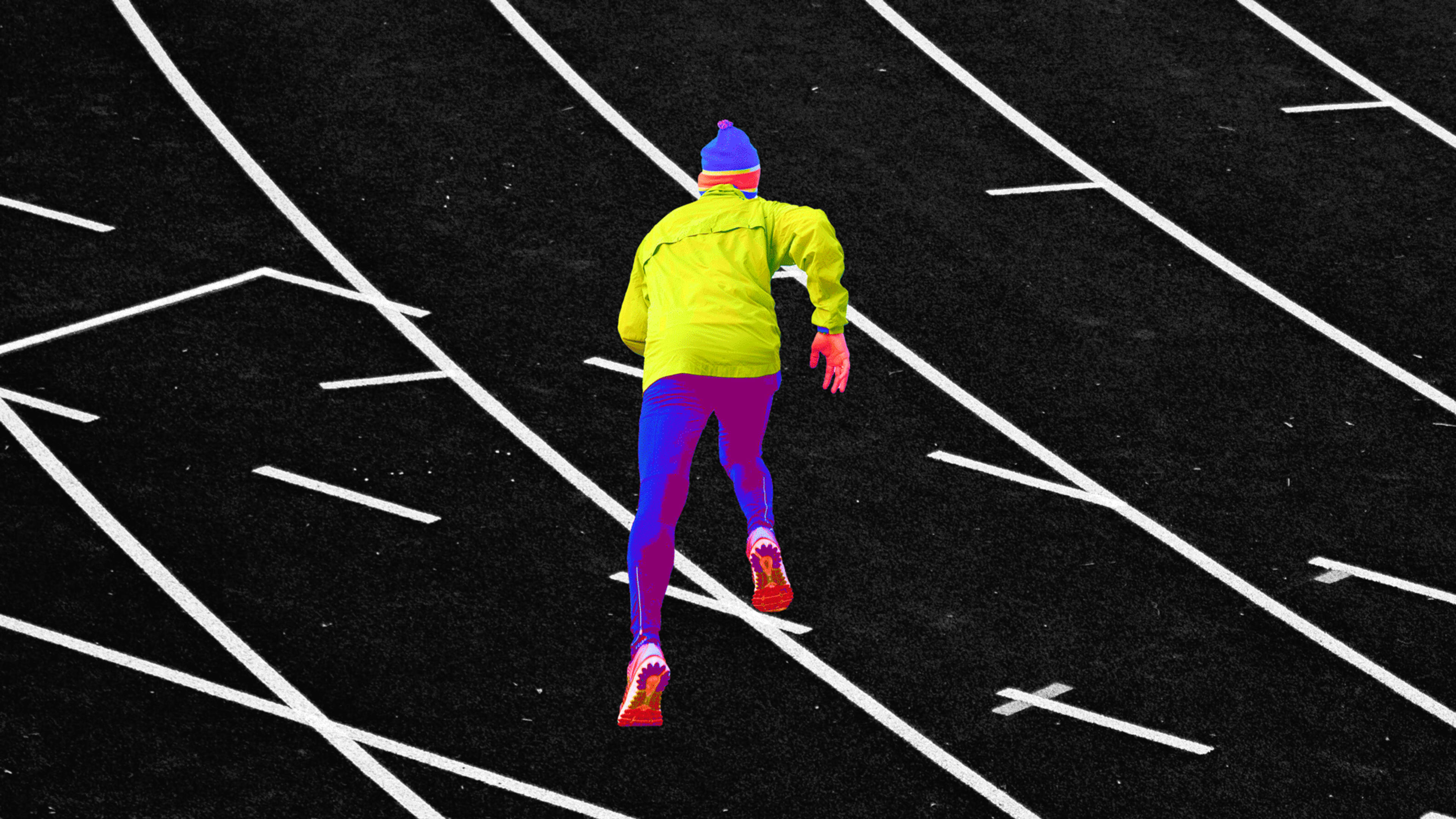We all want to perform our best when opportunities come our way. So why is it that some people can consistently tap into their highest potential on command while others flounder? Do these founders and visionaries think differently than us mortals? Is it their genetics? Perhaps they take truckloads of nootropics? Or do they just have the perfect playlist for getting hyped streaming in their earbuds at exactly the right time?
Turns out it’s something else entirely. According to new research published in the journal Music & Science, the biggest factor in overall performance for artists isn’t mindset, vision, or even a perfectly manicured bullet journal. It’s grit. And there’s good news: Grit can be cultivated and developed proactively at any age.
Angela Duckworth is the GOAT of grit. She’s dedicated her career to the study of grit and given us both a viral TED talk and a bestselling book on the subject. One of her most important distinctions is the definition of grit itself; most of us misinterpret grit as hardiness or resilience, but Duckworth defines grit as “passion and perseverance for very long-term goals”.
All of that sounds great. Unfortunately, I have this Pavlovian reaction to the phrase “very long-term goals” in which my inner Veruca Salt immediately chimes in with a “But I want it NOW!” zinger. How do we make the process of developing grit, well, easier? And is grit the secret sauce that can help us break through to new levels of creativity, innovation, or entrepreneurship?
Grit gets you to your destination, but flow sweetens the journey
As the Music & Science study notes, grit is a key ingredient for musical fluency. From the thousands of hours of practice to performing under pressure over and over again, self-taught crooners and classically trained soloists alike lean into technique to channel flow state, the sweet spot in which we lose ourselves in our art and perform at our best. The pursuit of excellence often requires lots of time and repetition; flow state makes this process more palatable. Take it from someone with two degrees in classical French horn: When you’re playing long tones for twenty hours a week, you’ll do whatever it takes to keep yourself entertained and focused.
According to the research, the level of musical training in these musicians was both “significantly correlated with flow (r = 0.32, p < .001) and with grit (r = 0.21, p = .007)." Makes sense, really. The more fluent you are with something, the easier it becomes to find your sweet spot on command. If you're pining for better productivity, fresh ideas, or peaking at the right time, flow state is your best friend, and grit makes hitting flow state way easier.
Mindset may not even matter
Here’s the kicker: Growth mindset, a hallowed cornerstone of innovation and entrepreneurship, did not correlate with flow state in the research. A proactive attitude is nice to have, but when it comes to incremental improvement and pushing the limits, you’re probably better off cultivating self-discipline than writing affirmations on your bathroom mirror.
This isn’t to knock positive psychology. If an episode of #AskGaryVee helps you put your nose to the grindstone, I say go for it. Just remember to actually do the grinding part once you’re there. Whether it be thinking outside the box or developing a new career skill, deliberate practice develops neural networks today that you can leverage and lean on in the future. Thanks to neuroplasticity, it’s never too late to learn and master something new.
How to develop grit
A quick recap: Grit helps you develop fluency, fluency makes getting into flow state easier, and flow state is where the magic happens. So how do we cultivate grit in a proactive, intentional way? Here are a few ideas to get you started.
Develop (and protect) a trigger
When it’s time to do focused work or deep thinking, a trigger word or activity can help you settle in. My triggers are this Spotify playlist of dark house music and some freewriting on 750words. Whatever your triggers are, try to keep them protected and only leverage them when you’re ready to get into the zone.
Dial-in your purpose
As Duckworth notes, you’re more likely to persevere through tough times when you’re fired up about the end goal. Ask yourself, “Why am I putting yourself through this, again?” Paint a clear picture of the final destination for both yourself and others and it’ll be easier to get everyone on board.
Fail fast, rebound faster
Instacart founder Apoorva Mehta famously quipped that his app, now valued at $39 billion at the time of this writing, was his twentieth startup attempt. And in Facebook’s early days, the company motto of “move fast and break things” was sprawled across the corridors. Grit is caring enough about your goals to get back up quickly when you’ve been knocked down, and rebounding gets easier when you fail regularly.
Our aspirations for innovation and success make us jump out of bed in the morning. But instead of letting that energy evaporate as the day goes on, channel it into grit so you can better persevere. Look for ways to make the long game both inspiring and enjoyable and you’ll have what you need to go the distance.
Nick Wolny is a former classically trained musician and a current online marketing strategist for small-business owners, experts, and entrepreneurs.
Recognize your brand’s excellence by applying to this year’s Brands That Matter Awards before the early-rate deadline, May 3.
